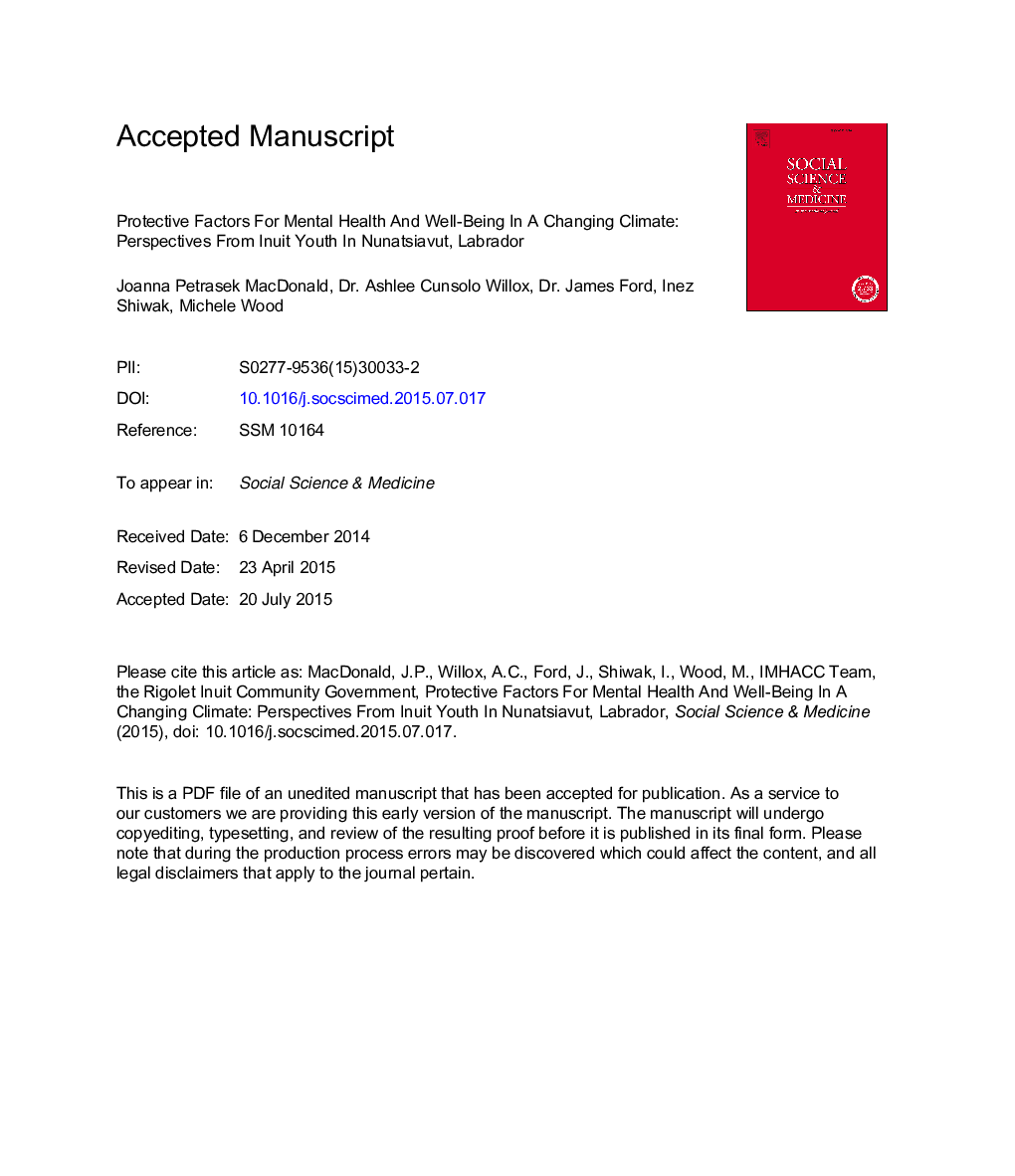| Article ID | Journal | Published Year | Pages | File Type |
|---|---|---|---|---|
| 7331935 | Social Science & Medicine | 2015 | 52 Pages |
Abstract
The Canadian Arctic is experiencing rapid changes in climatic conditions, with implications for Inuit communities widely documented. Youth have been identified as an at-risk population, with likely impacts on mental health and well-being. This study identifies and characterizes youth-specific protective factors that enhance well-being in light of a rapidly changing climate, and examines how climatic and environmental change challenges these. In-depth conversational interviews were conducted with youth aged 15-25 from the five communities of the Nunatsiavut region of Labrador, Canada: Nain, Hopedale, Postville, Makkovik, and Rigolet. Five key protective factors were identified as enhancing their mental health and well-being: being on the land; connecting to Inuit culture; strong communities; relationships with family and friends; and staying busy. Changing sea ice and weather conditions were widely reported to be compromising these protective factors by reducing access to the land, and increasing the danger of land-based activities. This study contributes to existing work on Northern climate change adaptation by identifying factors that enhance youth resilience and, if incorporated into adaptation strategies, may contribute to creating successful and effective adaptation responses.
Related Topics
Health Sciences
Medicine and Dentistry
Public Health and Health Policy
Authors
Joanna Petrasek MacDonald, Ashlee Cunsolo Willox, James D. Ford, Inez Shiwak, Michele Wood, IMHACC Team IMHACC Team, Rigolet Inuit Community Government Rigolet Inuit Community Government,
